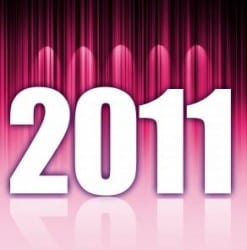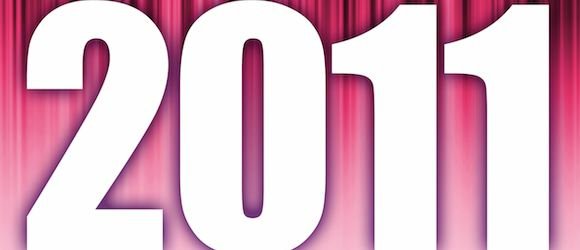Plagiarism & Copyright in 2011
 There’s no doubt about it, when it comes to matters of copyright and plagiarism, 2011 was a pretty eventful year and 2012 is shaping up to be an even bigger turning point.
There’s no doubt about it, when it comes to matters of copyright and plagiarism, 2011 was a pretty eventful year and 2012 is shaping up to be an even bigger turning point.
With copyright playing a bigger and bigger part of our lives, it makes sense that we would be increasingly invested in copyright law and the controversies that surround it. However, 2011 was a year, in many ways, that was defined by divisiveness. New legislation, treaties, trials and other stories did more to divide people than bring them together. However, new services and tools have also come along to open new doors for enjoying creative works and making sure that artists are being paid.
So what were some of the big stories in 2011? Here are just some thoughts and observations I’ve noticed as I looked back over the past year on Plagiarism Today and other copyright-focused sites.
Copyright: Looking Back Over 2011
Looking back over 2011, when it comes to copyright, most are likely going to remember it as the year of Stop Online Piracy Act (SOPA) and its related bills. While it’s true that the debate over these bills have been white-hot in recent months, most of the year was spent debating the Anti-Counterfeiting Trade Agreement (ACTA), which was signed by most parties, after several years of negotiations, in early October.
Though SOPA’s predecessor, PROTECT-IP, has been around since the early part of the year, it didn’t garter nearly the attention of its younger cousin, which largely kicked off the online protests.
In the courtrooms, the controversial company Righthaven, which was famous for its “no warning” lawsuits against those who allegedly copied content from the Las Vegas Review-Journal and, for a while, the Denver Post, has had a very rough year. It’s litigation campaign is on the ropes after a string of defeats and now is having its assets, including its domain, auctioned off to pay legal expenses to former defendants.
On the upbeat side, the music industry had a big year with the U.S. launch of Spotify and the launch of iTunes Music Match. Though these launches don’t mean the end of the piracy fight for the record labels (nor have they restored sagging profits yet), they show a shift in direction for the industry that may better position it in the future.
In fact, the record industry is continuing its war on music streaming service Grooveshark, which may be in serious trouble shows clearly that the record labels haven’t quite thrown in the towel on piracy.
However, on the movie side, Netflix faltered in a major way with a botched price increase and proposed name change. However, movie studios and tv networks scored some major legal victories, including the shuttering of DVD streaming service Zediva.
When it comes to consumers, in the U.S., major ISPs and rightsholders agreed voluntarily to a “six strikes” system to address suspected infringement. New Zealand passed a “three strikes” law and France ran into some trouble with their ongoing regime after a data leak.
All in all, 2011 was a very controversial year and one with a lot of divisiveness and bitterness. In it though, there was still some reason to hope and thoughts that may move us forward to a better future.
Plagiarism and Content Theft: Looking Back Over 2011
When looking at the situation for webmasters, bloggers and other smaller content creators, the biggest story of the year likely has been Google’s “Panda” updates, formerly known as “Farmer”. With those updates, Google publicly went to war with content farms, spam sites and scrapers.
The results, however, have been mixed. While many who were victimzed by spam sites earlier have seen relief and the updates may be discouraging new spammers from getting in the business, other sites, which are routinely the victim of spammers, have been gobbled up with the updates along with the copycats.
However, history has shown us that the impact of the changes likely won’t be that great in the long run.
Google also made strides with its DMCA service, accepting form DMCAs (as opposed to faxed ones) for all of their services and greatly improved their response time on DMCA matters.
In non-Google related news, the year began with another round of plagiarism tests by Dr. Weber-Wulff, a professor at the HTW Berlin.
Weber-Wulff gave top honors, this time, to PlagAware, a Germany-based service not well known in the U.S. She also gave high marks to Turnitin, Ephorus, PlagScan and Urkund. Other U.S. favorites such as Copyscape and Plagium fell into either the “Barely Useful” or the “Useless” categories.
Finally, when it comes to detecting image plagiarism and infringement, one of the major players, PicScout, was purchased by the major stock photo company Getty Images, likely in a bid to help continue its legal campaign against infringement.
Bottom Line
All in all though, what 2011 will most likely be remembered for, in the long run, is that it was a “business as usual” kind of year for these matters. When you discount the steep controversies and the ongoing debates, there was little legislation, few major legal victories and little that, by itself, will have a major impact moving forward.
In many ways, this was a year to set the stage for a potentially huge 2012 but even that is debatable as there are many variables at play. With the slow pace of copyright and plagiarism news, it could easily be another year or two before we have any major turning points.
Or, it could be tomorrow.
Still, with no Limewire-sized services being shuttered, Grokster-like rulings, DMCAs being passed and so forth, there probably won’t be that much to remember 2011 for when this time next year rolls around. 2011 may have set the stage, but it didn’t play the lead part.
Want to Reuse or Republish this Content?
If you want to feature this article in your site, classroom or elsewhere, just let us know! We usually grant permission within 24 hours.
